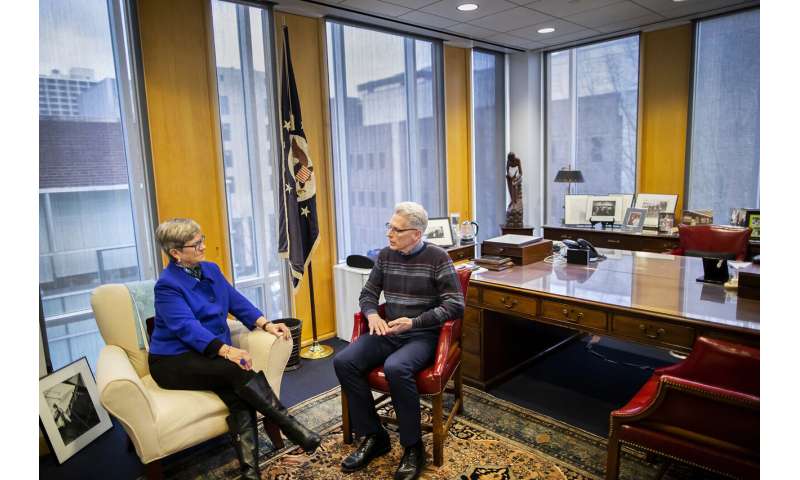FactCheck.org and the fight against misinformation

When the Annenberg Public Policy Center launched FactCheck.org, the site had one writer—veteran journalist Brooks Jackson—debunking political deceptions for an audience of journalists. Now, the nonprofit has nine full-time staffers, undergraduate fellows, and three freelance translators who convert content into Spanish, and the focus has expanded to include false or misleading scientific claims and viral misinformation on social media.
Jackson founded FactCheck.org in December 2003 with Kathleen Hall Jamieson, director of the Annenberg Public Policy Center and the Elizabeth Ware Packard Professor of Communication at Penn's Annenberg School for Communication. But it was a 2004 reference by Dick Cheney in a vice presidential debate that brought the site into the public eye.
"There's far more misinformation now in public campaign discourse of presidential candidates than there was when we founded the site," Jamieson says. "The work of FactCheck.org is needed more than ever."
In 2010, the organization started a fellowship program for undergraduate students. Fellows train for eight weeks in the summer and work as many as 20 hours a week the following school year. "We are enhancing their educational opportunities and their capacities to be great journalists when they leave us or to use those capacities in whatever profession they decide that they're going to pursue," Jamieson says.
FactCheck.org launched its SciCheck feature in 2015, and, when current science editor Jessica McDonald started as a science writer in 2018, she largely wrote about climate change. McDonald says she used to see more incorrect statements that climate change isn't real, whereas now more statements from politicians are focused on distorting the facts about solutions.
The existing infrastructure of SciCheck, plus McDonald having a Ph.D. in immunobiology, meant the site was unusually well positioned for a fact-checking operation to build capacity when the COVID-19 pandemic hit.
"Pretty much overnight, I went from writing Earth science stuff to all health information," McDonald says. "My primary focus was to fact check the president or anyone else of importance who might say something that was incorrect or misleading about the pandemic and then eventually the vaccines." In addition to fact checking statements about science from politicians, she covers social media misinformation and writes informative articles, such as explainers and Q&As.
Eugene Kiely, director of FactCheck.org, says that at the beginning of the pandemic FactCheck.org was getting a million page views per day, much of which came from Google. A grant from the Robert Wood Johnson Foundation allowed the site to translate all COVID-19 stories in 2021 into Spanish, Kiely says, and translation efforts expanded the following year into articles about maternal, reproductive, and climate health. He has also partnered with Univision and other outlets.
A lot has changed since 2003 about the fact-checking landscape. Jamieson says the function of FactCheck.org was not controversial initially but, "when it became ideologically convenient to attack us, people attacked us, and that was from both the left and the right." She also says a big challenge staff face now is AI-generated content and deepfake imagery "that look more real than real."
Kiely says he has observed websites peddling fake news—often for financial gain—grow more partisan and more sophisticated. Kiely has found that alternative social media and newsletter platforms have worsened polarization, and McDonald reports an increase in bad science being published.
But, like 20 years ago, the staff once again find themselves in a presidential election year. Kiely says that means going through TV ads, watching debates and convention speeches, and then picking seven or eight Senate races on which to focus. It also means getting less sleep.
Provided by University of Pennsylvania